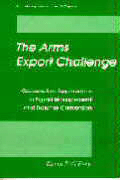This book examines the nature of the international arms trade and the adjustment of the defense industries in the United States and Russia to the post-cold war world. O’Prey highlights the substantial reduction in demand for armaments both on the world market and by the two countries. Although this decrease in demand results partly from the decline of the superpower rivalry, it also represents the culmination of technological and industrial trends that have been under way for over a decade.
O’Prey argues that many observers have not recognized the long-term nature of these changes. As a consequence, industry representatives and some government officials in both countries often unwisely emphasize arms exports as a means to preserve their cold war defense industries. Given the high expectations of export success and low levels of demand, competition among arms suppliers has become intense. In the process, proliferation of armaments, technologies, and production processes to outlaw states has become more likely. In addition, false expectations of arms export success may lead officials to forgo necessary restructuring and conversion of their defense industries. This problem is especially pronounced in Russia.
O’Prey offers a number of suggestions for resolving the problems posed by arms export competition and defense industry adjustment. He argues that in virtually all cases, cooperation or partnership between the U.S. and Russia will be essential. Potential measures range from mutual restraint in arms exports to private industry partnerships for defense conversion and ultimately to multilateral initiatives for defense industry and export cooperation.
Author
Kevin P. O'Prey is a member of the MIT Post-Soviet Security Project and was a research fellow at Brookings.

